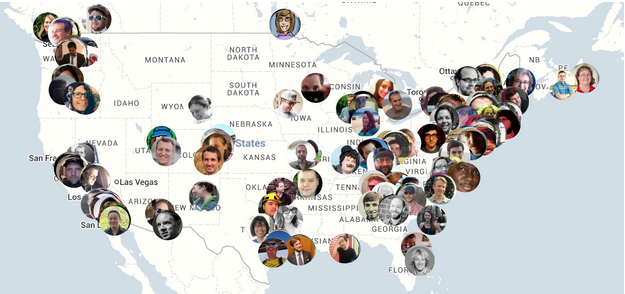If You Want to Find Better Candidates, Start Hiring Remotely

Seriously though: the way we work has changed. Our jobs no longer need to determine the cities we live in. Modern communication tools, high-speed Internet, and portable computing have all made it possible to work from any location in the world.
For employers, this is a big deal as they engage the labor market. With such a large talent pool to choose from, remote employers are able to find much higher quality candidates and save money by reducing office space and salaries. In fact, we may one day wonder why offices ever existed in the first place.
“[T]elecommuting has risen 79 percent between 2005 and 2012 and now makes up 2.6 percent of the American workforce, or 3.2 million workers.” – The New York Times
Hiring Remotely Has Huge Benefits
- You Have a Much Larger Talent Pool to Draw From
Amazing talent is hiding in every corner of the world. Hiring remotely allows you to tap into this pool of potential employees, giving you a huge advantage over traditional companies, which are stuck hiring only people who live near their offices or are willing to relocate.
- Remote Teams Waste Less Money
When your entire team is remote, you eliminate the need for an office. In fact, IBM reports savings of about $100 million each year thanks to its remote working policy, which heavily reduces the square footage required for the company’s massive workforce.
You can also save money on salaries. Whether you’re hiring in sales, marketing, or engineering, candidates in New York City are going to cost far more than equally skilled candidates in Omaha.
- Remote Teams Are More Diverse
Being on a globally distributed team for the last three years, I’ve experienced this one firsthand. Diversity is critical for fostering innovation and can be a huge competitive advantage. Cultural differences lead to products that are more viable to the global market.
Working on a diverse team also encourages tolerance and teaches us that our differences can actually be our strengths.
“Strength lies in differences, not in similarities.” – Stephen Covey
- Time Zones Can Actually Work to Your Advantage
Time zones can sometimes be tough to deal with, but believe it or not, they can actually be a good thing!

Time zones are also great for customer service. When your team spans the globe, you can offer customer service at all times of the day. This can give you a leg up on the competition, which might have fixed hours of support.
I’d be lying if I didn’t say that time zones also present some challenges. Team overlap is still very important, but can be tough to achieve when you’re distributed. Your teams might need to adjust their work schedules to make it possible.
Tons of Great Companies Are Embracing the Future of Remote Work
If the promise of remote work sounds too good to be true, don’t take my word for it. Here are just a few examples of companies which have built great products with team members distributed all over the world:
- Buffer
Buffer’s remote team spans the globe from San Francisco to Cape Town and Beijing.
- Automattic
With 300 employees spanning 190 cities, Automattic is a great example of a remote company done right.

A map of Automattic’s employees in the U.S.
- IBM
Remote work isn’t just for the new kids on the block. According to Big Blue, currently 40 percent of its 386,000 employees work remotely, either at home or at a client site.
- Zapier
Zapier has managed to build a great company culture, despite its 20 employees being scattered across the globe.
Remote Work Isn’t All or Nothing
If this is all scary and new to you, don’t worry! Great remote teams aren’t built overnight, and it’s perfectly fine to do some experimentation.
For example, if your company doesn’t currently have a remote working policy, why not test the waters by allowing your team to work from home just one day a week?
Once working remotely becomes more commonplace in your organization, you can try searching for remote candidates to fill a couple open positions.
Where to Find Great Remote Candidates
With remote work on the rise, there’s no surprise that job boards are springing up to cater specifically to this new way of working.
I recently compiled a list of the best places to find talented remote workers and telecommuters for your business.
—
When it comes to remote working, it’s lead, follow, or get out of the way. The future is coming, and it’s coming quickly. The businesses that are taking advantage of this remote working trend are the ones most likely to survive this changing landscape.
So if you’re serious about finding better talent, fostering diversity, and, ultimately, building a better business, maybe it’s time you started hiring remote workers?

